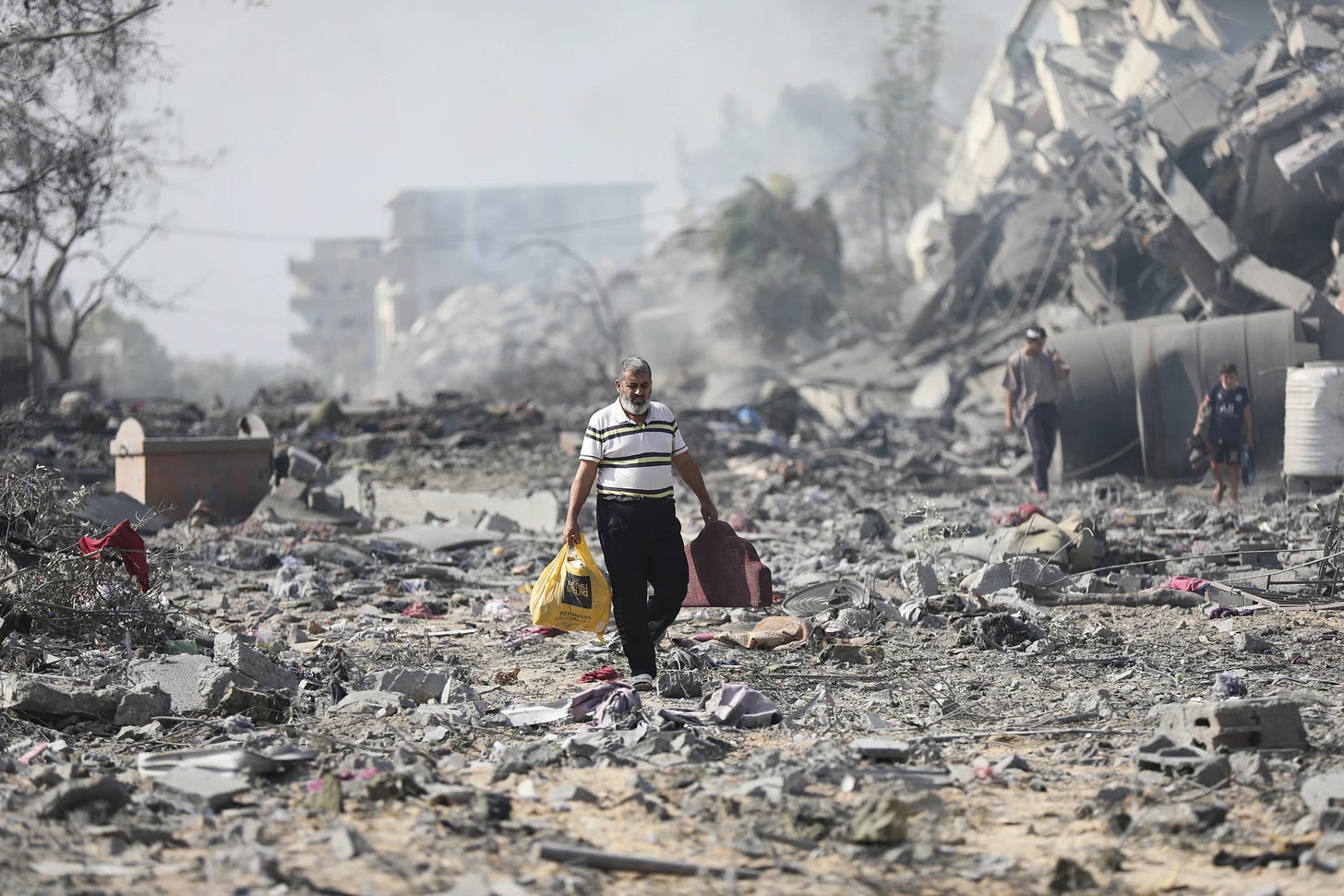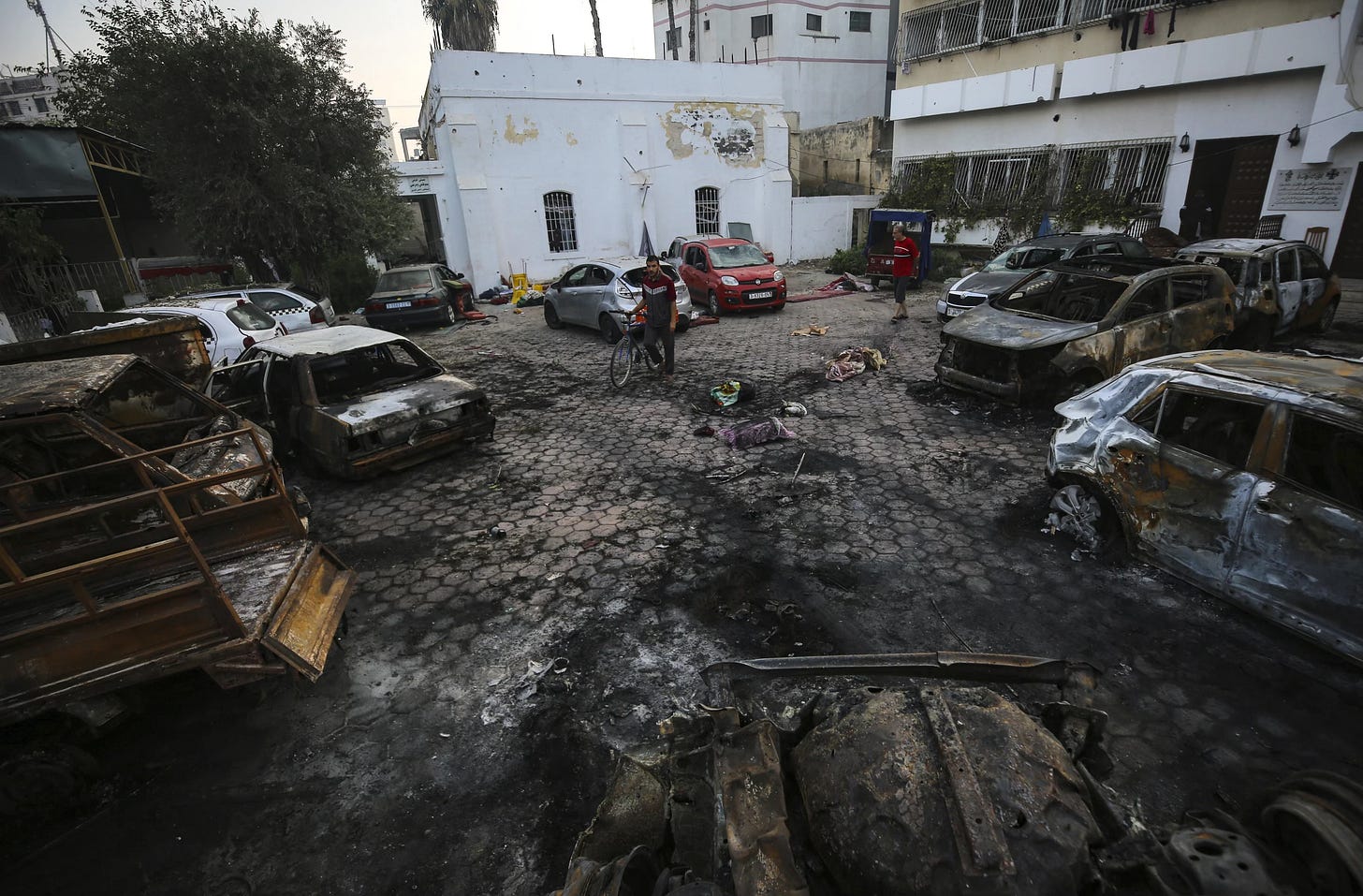Escalating Conflict in Gaza: U.S. Bolsters Defense, Humanitarian Aid Trickles In

Early on Sunday, Israeli forces launched air raids on southern Gaza, and announced plans to ramp up operations in the northern part of the enclave. This came as the U.S. vowed to bolster its air defenses in the Middle East, following some attacks on American soldiers in the area.
As the sun rose over southern Gaza, Israeli forces initiated a series of air raids, targeting key locations in the region. Simultaneously, plans were unveiled to intensify military operations in the northern areas of the enclave. These actions were a response to the rising tensions and recent attacks on American troops in the Middle East.
Palestinian sources, reporting from the ground, conveyed the grim reality of these airstrikes. At least 11 individuals lost their lives in a devastating airstrike on Khan Younis, a city in southern Gaza. Reports also indicated ongoing strikes on Rafah, another southern city, as the violence continued unabated.
These actions followed a directive from Israeli military spokesperson Rear Admiral Daniel Hagari, who, in a press statement, advised residents in Gaza to relocate southwards to avoid harm. This directive underlined the escalating nature of the attacks around Gaza City, raising concerns about the safety of civilians in the region.
The catalyst for this wave of violence was an assault on southern Israel on October 7th. During this attack, militants from the Islamist movement Hamas unleashed a devastating assault that claimed the lives of 1,400 people, the majority of whom were civilians. This shocking rampage left Israel in a state of trauma and disbelief.
In retaliation, Israel imposed a "total siege" on Gaza and launched a barrage of air and missile strikes. The toll of these retaliatory strikes, as per Gaza's Health Ministry, has been grim, with at least 4,385 Palestinian fatalities reported, including hundreds of children. Additionally, over a million people have been displaced amidst the turmoil, creating a dire humanitarian crisis.
In response to the escalating situation in the region, the United States swiftly decided to deploy additional air defense systems. These include the deployment of Terminal High Altitude Area Defense (THAAD) and extra Patriot missile system battalions to the Middle East. This decision was made in light of a series of drone and rocket attacks on U.S. military bases in Iraq, following warnings from Iraqi militants against U.S. involvement in supporting Israel against Hamas.
In response to these developments, Defense Secretary Lloyd Austin took decisive steps to enhance the Department of Defense's stance in the region. These measures were taken following detailed discussions with President Biden regarding the escalating situation involving Iran and its proxy forces across the Middle East. Simultaneously, the United States significantly amplified its naval presence in the Middle East to bolster its strategic position.
In a ray of hope amidst the conflict, the first humanitarian aid convoy was permitted entry into the besieged Gaza Strip. This convoy made its way through the Rafah border crossing, carrying life-saving supplies that would be received by the Palestinian Red Crescent. However, the United Nations noted that the volume of goods that entered on this occasion was just 4% of the daily average of imports into Gaza before the hostilities. This situation underscores the dire need for more substantial humanitarian assistance given the ongoing siege.
President Biden, recognizing the critical need for aid, expressed his unwavering commitment to ensure more supplies reach the Palestinians who are facing severe shortages of basic necessities such as food, water, and medicine.
On the international diplomatic front, the United States proposed a draft U.N. Security Council resolution. This resolution affirmed Israel's right to self-defense while urging Iran to cease arms exports to groups destabilizing the region, further emphasizing the complexity and global implications of the situation.
In a recent incident, a deadly explosion at Al-Ahli hospital in Gaza on October 18th, was initially attributed to an Israeli strike. However, subsequent investigations by defense authorities in Canada, the U.S., and France revealed that it was likely caused by an errant rocket fired from Hamas. This revelation brought some clarity to a tragic event that added to the complexity of the situation. Many protests broke out around the world after footage and images were spread rapidly online of the explosion and the aftermath. The next day saw protests call for rapid intervention, after media outlets stated some 500 citizens (mostly woman and children) were killed in the blast at the hospital. These reports were later refuted after the world saw attacks on western embassies and soldiers in retaliation of the bombing.

The tension in the region escalated further as Israel amassed its tanks and troops near Gaza's fenced border, hinting at a potential ground invasion. The primary aim of this move is to neutralize Hamas, a step taken following several unresolved conflicts since Hamas seized control in Gaza in 2007.
Hostilities then extended into Lebanon, where Israel targeted Hezbollah positions after alleged targeted attacks from Iran backed Hezbollah. These actions reflect the increasing fears of a broader regional conflict. Israeli forces also conducted strikes in the West Bank, underscoring the widespread unrest in the region. In response to these developments, U.S. Secretary of State Antony Blinken cautioned Lebanon's Prime Minister Najib Mikati about the potential ramifications if Lebanon gets embroiled in the escalating conflict.
With clashes in the West Bank leading to casualties, and ongoing military preparations, the entire region remains on a razor's edge. Russia and China both have stated the war highlights the need for the creation of an independent Palestinian state, and China's foreign minister told his Saudi counterpart the Israeli response had gone "beyond self-defense." The global community closely monitors the unfolding situation, recognizing the profound implications and urgent need for diplomatic solutions in a region fraught with historical tensions.
In an era of global interconnectedness, the world stands united in vigilance, watching and waiting with bated breath, fervently hoping that the specter of World War III remains forever at bay. The lessons of history serve as a stark reminder of the catastrophic consequences of global conflict, and the international community is acutely aware of the need to prevent such a calamity. Diplomacy, dialogue, and cooperation are the pillars upon which the world leans, seeking to resolve disputes peacefully and ensure that the horrors of another world war are never realized. The world's collective hope remains firmly rooted in the pursuit of peace and stability, with a shared commitment to safeguarding a future free from the ravages of global warfare.



